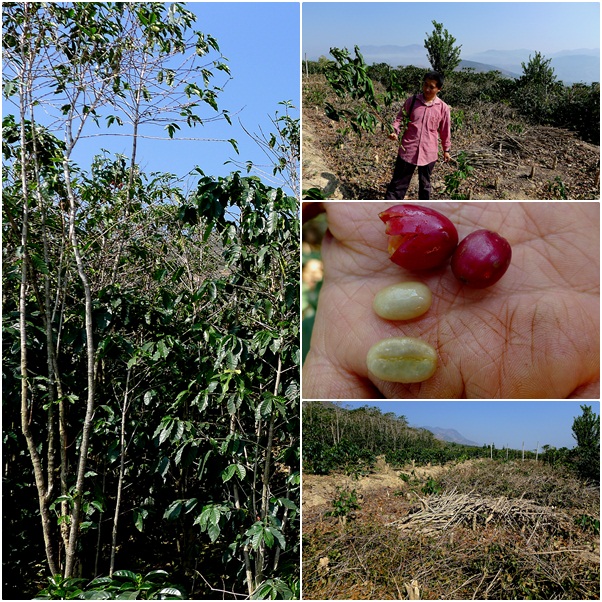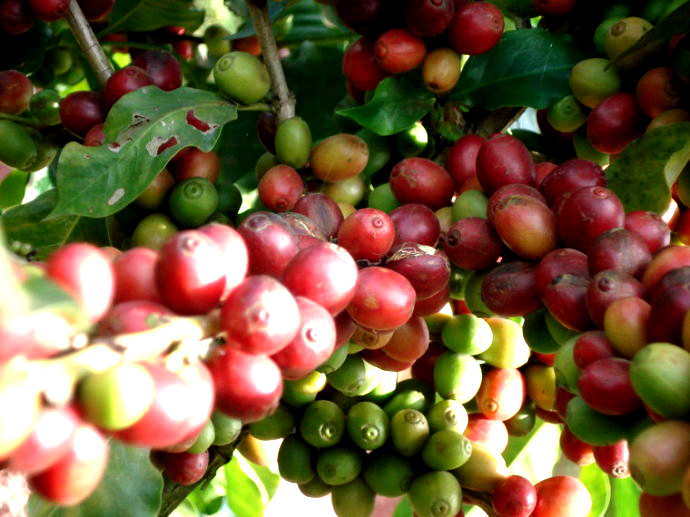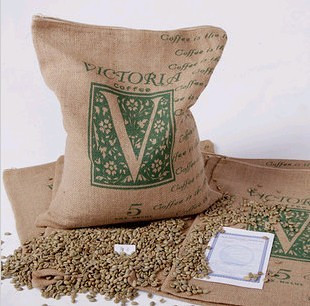Is it Robusta or Arabica? Coffee bean variety Rwanda washing treatment bourbon variety
Coffee has more than 100 coffee varieties, the more common coffee are: Arabica Arabica, outstanding personality, unique flavor, is the main boutique coffee, mainly used for coffee shop operations and high-end coffee market supply; Robusta Robusta, flavor rough, high caffeine content, not a boutique coffee, often used for instant coffee processing and Italian coffee mixed beans.
Ethiopia Typica (iron pickup) and Yemen Bourbon (bourbon) are the oldest coffee varieties known so far. They have been transplanted from their original places to Central and South America and Asia to derive many Arabica variants. Arabica coffee cultivated in Yunnan Province of China belongs to one of Typica variants, and Bourbon variants exist in other regions.
RwandaWestProvinceRutsiroMushonyiCWSBourbon
Country: Rwanda
Production area: Lutexi Luo production area in Western Province
Altitude: 1827 m
Rainfall: >1500mm
Treatment method: washing, elevated shelf drying
Breed: BM-139 (bourbon) species
Treatment Plant: Mousioui Treatment Plant
Farm owners: 1756 smallholder members (approximately 253 plants per smallholder)
Flavor: Red apple, cherry, cinnamon, honey
[Mushonyi Processing Plant's record of winning awards is amazing. Apart from winning the COE Excellence Cup in one fell swoop in 2010, Mushonyi Processing Plant won the championship in four batches in 2011 alone, ranking 12th, 16th, and 28th!!!]
Rwanda can be said to be one of the fast-growing fine coffee producing countries in East Africa. In addition to the sad stories about the Rwandan massacre, the quality of its fine coffee has also improved very quickly. We have tested several fresh, elegant and sour cups this year.
Rwandan coffee, like many African countries, is mainly produced by small farmers. During the harvest period, the ripe coffee cherries are collected and sent to the processing station for processing. Every year, farmers gather ripe coffee berries for processing at processing stations, first picking them by hand to ensure that no immature or damaged fruit is mixed in. Then remove the peel, wash and ferment for 12-18 hours under cool and low temperature environment, and clean the adhered pectin in the channel. During the drying process, the members of the processing station will manually turn and carefully care to ensure that the shelled green beans do not lose moisture or dry unevenly in full sunlight until the moisture content stability of the green beans drops to less than 14%.

Important Notice :
前街咖啡 FrontStreet Coffee has moved to new addredd:
FrontStreet Coffee Address: 315,Donghua East Road,GuangZhou
Tel:020 38364473
- Prev

What are the varieties of Yejiaxuefei Coffee beans? introduction to the flavor characteristics of Yejiaxuefei producing area
Iron pickup "Typica" iron pickup, the name sounds majestic and powerful, but in fact it is not so strong. It has a weak physique, poor disease resistance, easy to catch rust leaf disease, and produces less fruit. It is one of the oldest native varieties in Ethiopia, and many Arabica are derived from iron pickups! The parietal leaf of the iron pickup is ancient.
- Next

Tin or bourbon? Coffee beans, coffee beans
Iron pickup "Typica" iron pickup, the name sounds very majestic, but in fact it is not so strong, its constitution is weak, disease resistance is poor, easy to catch rust leaf disease, fruit yield is also small. It is one of Ethiopia's oldest native varieties, and many Arabica are derived from iron pickups! One of the characteristics of iron pickup is that the top leaves are bronze, and the beans are larger, oval or thin and pointed.
Related
- Detailed explanation of Jadeite planting Land in Panamanian Jadeite Manor introduction to the grading system of Jadeite competitive bidding, Red bid, Green bid and Rose Summer
- Story of Coffee planting in Brenka region of Costa Rica Stonehenge Manor anaerobic heavy honey treatment of flavor mouth
- What's on the barrel of Blue Mountain Coffee beans?
- Can American coffee also pull flowers? How to use hot American style to pull out a good-looking pattern?
- Can you make a cold extract with coffee beans? What is the right proportion for cold-extracted coffee formula?
- Indonesian PWN Gold Mandrine Coffee Origin Features Flavor How to Chong? Mandolin coffee is American.
- A brief introduction to the flavor characteristics of Brazilian yellow bourbon coffee beans
- What is the effect of different water quality on the flavor of cold-extracted coffee? What kind of water is best for brewing coffee?
- Why do you think of Rose Summer whenever you mention Panamanian coffee?
- Introduction to the characteristics of authentic blue mountain coffee bean producing areas? What is the CIB Coffee Authority in Jamaica?

